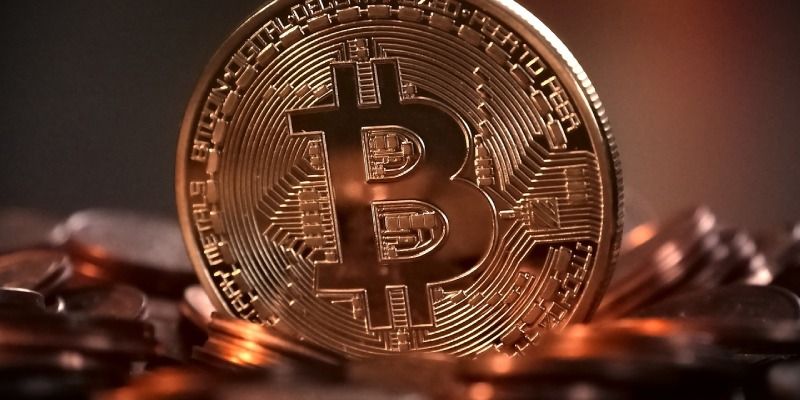
- ● Over 4,800 slots and 400+ Live games
- ● Fast Withdrawals
- ● Lemon Lotto Wheel - Daily No Deposit Free Spins
- ● Treasure Boxes - Loyalty Program
- ● Non-Sticky Welcome Bonuses
- ● No wager 7% Weekly Cashback
NFTs and blockchain technology are converging to cause a seismic shift in the gaming industry. This revolutionary tide is reshaping iGaming’s ownership, economy, and player experiences in ways never seen before. According to recent research, the number of NFT owners will reach an astonishing 19 million by 2027.
Blockchain gaming, the characteristics of NFTs, the ways in which they differ from cryptocurrencies, the need for standardization and regulation, and the unprecedented influence they set on the iGaming industry are factors that must be explored in order to fully grasp the scale of this paradigm shift.

By offering decentralization, transparency, and actual ownership to the game ecosystem, blockchain gaming is a radical departure from the traditional centralized paradigm. To confirm, secure, and authenticate in-game assets and transactions, blockchain gaming fundamentally employs blockchain technology, a distributed and immutable ledger.
Without a governing body in place, players have more say over their virtual possessions. Blockchain uses cryptography to make transactions safe, which lessens the chances of fraud, hacking, and tampering. Because of this, people feel safe participating in digital marketplaces.
Smart contracts are an integral part of blockchain technology; they are agreements that automatically carry out their conditions and are encoded in code. In the context of video games, this means scripted and robotic features. Automated reward systems, player-triggered dynamic events, and more are all made possible by smart contracts in games.
Blockchain technology makes it possible to “tokenize” virtual game assets, turning them into individual digital tokens. These tokens, which are typically represented by NFTs, are stored on the blockchain together with data pertaining to their qualities, ownership, and provenance. By using tokens, digital assets can be represented by something with real value and ownership.
NFTs are digital assets that are both unique and immutable. Each NFT is a one-of-a-kind and cannot be exchanged for another token of the same value, in contrast to fungible cryptocurrencies like Bitcoin and Ethereum. The use of cryptographic signatures and blockchain verifications ensures this exclusivity.
While both NFTs and cryptocurrencies are based on blockchain technology, they are used for quite different things. Bitcoin and other cryptocurrencies are digital currencies with a standardized value that facilitates easy trade between users. In contrast, NFTs serve as proof of ownership or authenticity for a wide variety of digital and physical assets, from works of art and music to real estate and game goods.
When compared to cryptocurrencies, NFTs lack the same degree of regulation and standardization. Based on the Ethereum blockchain’s ERC-721 or ERC-1155 standards, each NFT can have its own set of characteristics and features. The special nature of NFTs makes them effective symbols of ownership and scarcity.

The legality and regulatory status of NFTs can change from country to country. While some nations have accepted NFTs as legal digital assets, others are looking into regulatory frameworks to safeguard against fraud, money laundering, and intellectual property infringement. In Canada, it is safe to say that they are taxable.
For NFTs to be regulated, concerns about intellectual property rights, consumer protection, and financial transparency must be addressed. Know Your Customer practices are used by some marketplaces and platforms with the intention of improving safety and legal conformity.
When used with iGaming, NFTs completely transform the idea of property. In contrast to the developer-owned nature of in-game objects in traditional gaming, NFTs provide players with legal ownership of their in-game assets. The blockchain permanently records this ownership information, guaranteeing its veracity and integrity.
NFTs pave the way for the development of player-driven, decentralized economies. There is a thriving market for NFTs because players can buy, sell, and trade them both inside and outside of game ecosystems. This transition from centralized to decentralized economies gives players more agency and opens up new ways to make money from their in-game exploits.
Smart contracts tied to NFTs make it possible to create programmable assets, which in turn can be used to create dynamic user experiences. This translates into ever-changing gameplay for online gamers. If a player has a certain number of NFTs, the game might do something special for them, grant them access to premium features, or even change the plot.
NFTs enable the tokenization of not just physical goods but also identities and intangible accomplishments within the context of video games. Rare in-game accomplishments, traits, or even entire characters can be tokenized and used to provide a unique and memorable experience for each player.
NFTs encourage greater participation from members of a gaming ecosystem, which is beneficial for both community involvement and governance. Holders of NFTs may be eligible for governance tokens, which would give them a voice in the game’s future growth and direction.
Although the advantages of NFTs are clear, there are several technical hurdles to overcome before they can be fully integrated into casinos’ existing infrastructure. The casinos’ infrastructure must be strong enough to safely process blockchain transactions.
| Compliance with Regulations | The regulatory framework surrounding cryptocurrencies and NFTs is in its early stages of development. When it comes to anti-money laundering and KYC measures, casinos have to traverse regulatory frameworks to maintain compliance. |
| Volatility | Similar to other cryptocurrencies, NFTs can experience significant price swings. This creates some unpredictability in the market value of NFT assets, which affects both casinos and players. |
| Security Concerns | Even though Blockchain technology is extremely secure, there are still potential security loopholes and hacking attempts. Casinos and players need the tightest security possible for NFT transactions. |
| Balancing Innovation and Stability | Introducing NFTs into casinos requires a delicate balancing act between being open to new ideas and ensuring the business continues to run smoothly. Casinos are negotiating the intricacies of this new frontier in pursuit of the promise of improved player experiences and decentralized economies. |
| Long-Term Viability | The long-term success of casinos that work with NFTs will depend on how well they deal with the problems that arise. The potential for NFT transactions in gambling establishments is expected to grow as technology advances and regulatory frameworks improve. |
| Strategic Adoption | Casinos are using NFTs strategically to set themselves apart from the competition. Those who adopt NFTs first will gain the prestige of being industry leaders, which could attract tech-savvy customers looking for something new. |
This meeting of traditional casinos with NFTs is a watershed point in the history of the gaming industry. In an effort to revolutionize the way their customers interact with virtual environments, casinos are taking a risk and exploring blockchain technology. We have nothing against the blockchain industry, but the casinos have more to lose by going down the wrong path.
Despite the obstacles, casinos seem to be on a highly potential route. Studies have shown the integration of NFTs has translated into a rise in player participation and empowerment. The future of casinos that accept NFTs holds the potential for a more dynamic, player-centric, and technologically advanced gaming landscape as this mutually beneficial relationship develops.


